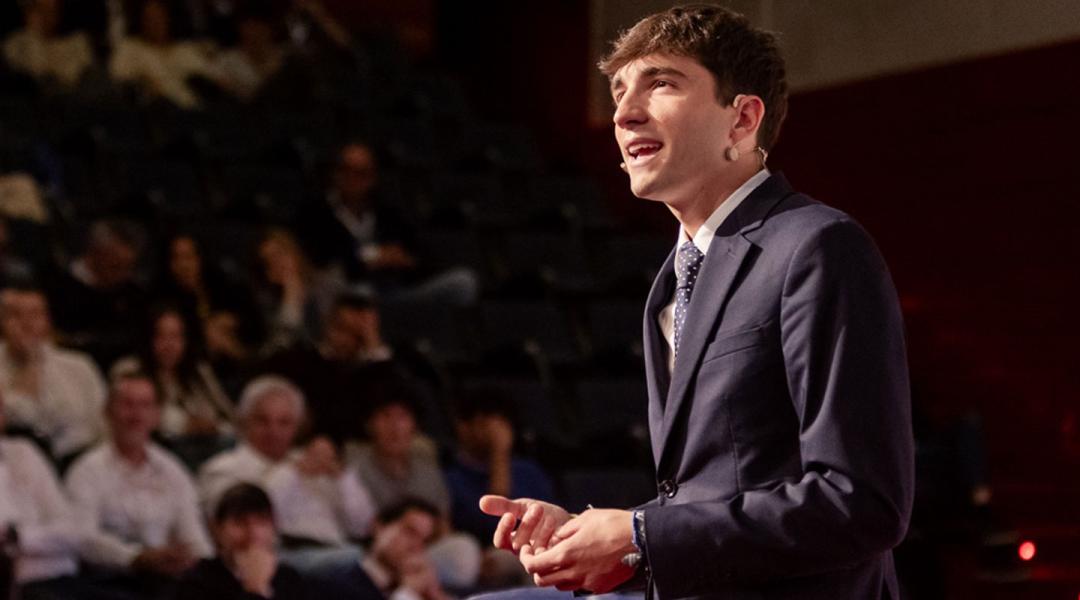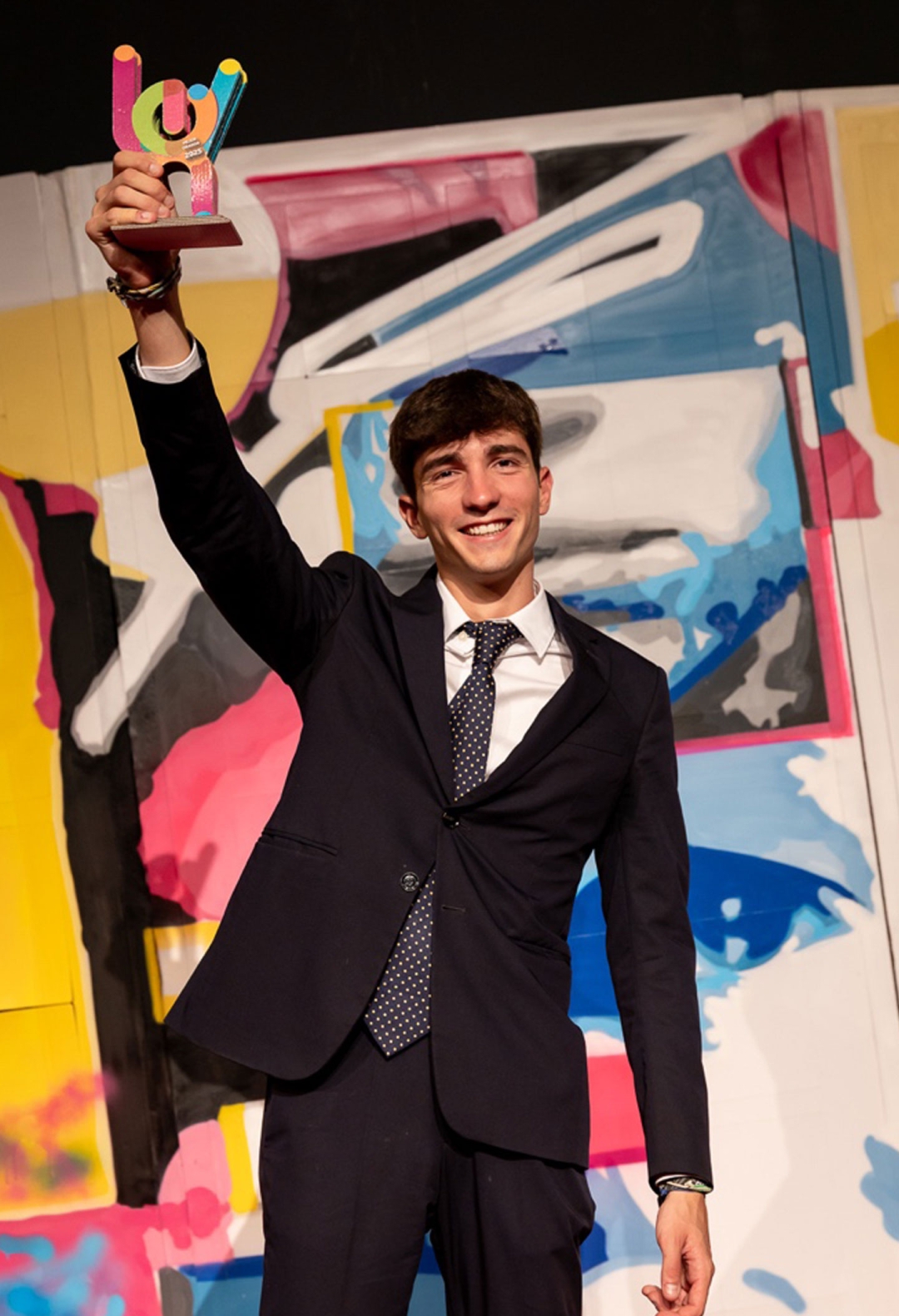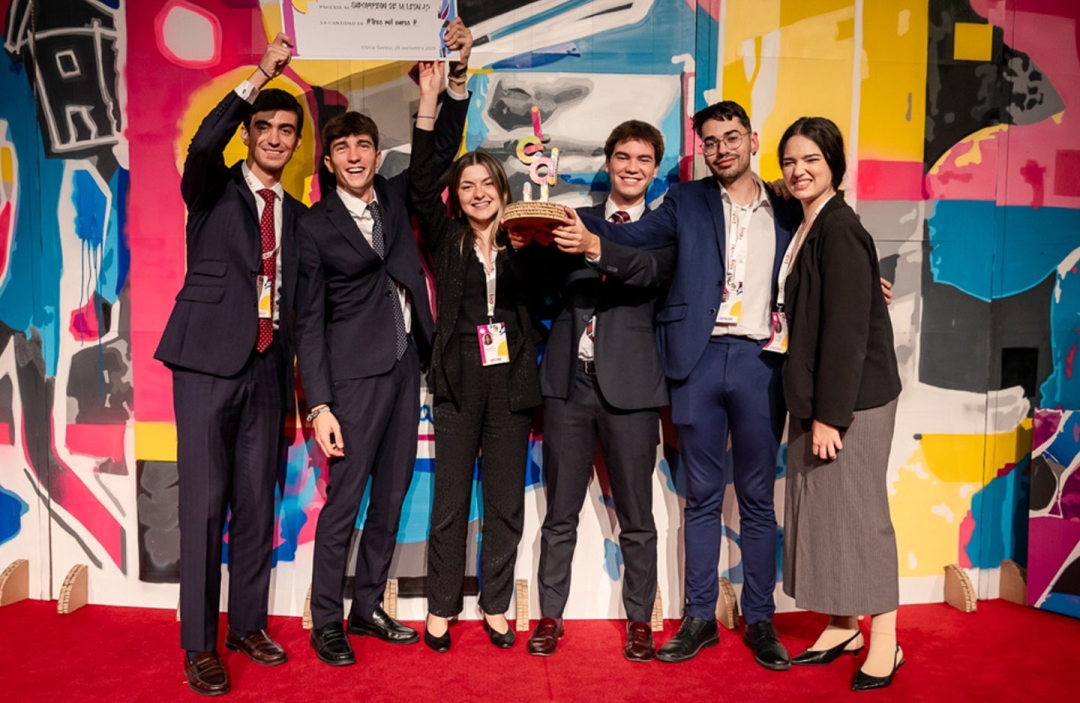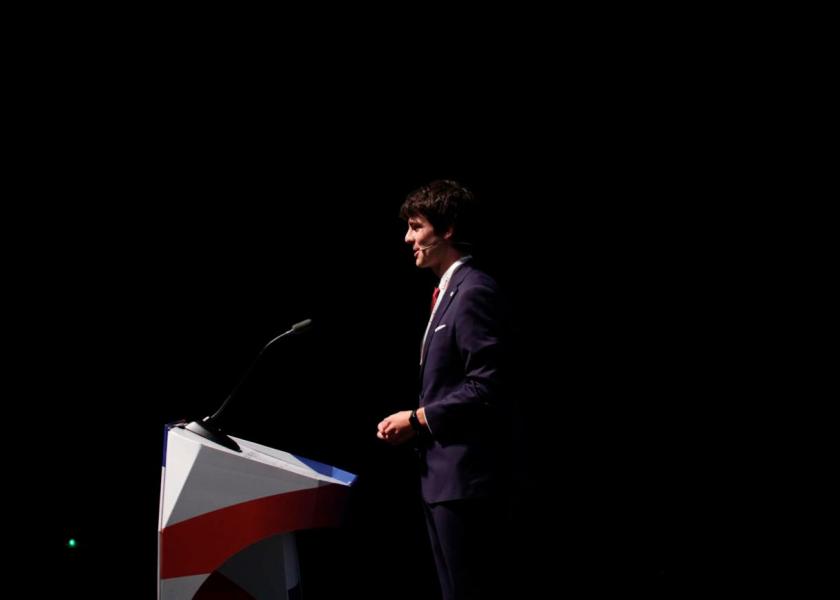Ignacio Blanco
A scale of greys

The Spanish University Debate League (LEDU) celebrated its 25th edition and its best speaker, Ignacio Blanco, a young journalist who defends the grey scale in a polarised world that seems to be ruled by black or white. In a world on tenterhooks, with speeches that are often phony, his recommendation is to be natural, remain calm and convey confidence. In short, to reconnect with our human side.
“The way we deliver a message is just as important as the message itself.” A statement that is worth its weight in gold from the recently selected best speaker at the Spanish University Debate League (LEDU)—sponsored by Iberia—. His name is Ignacio Blanco (Las Rozas, Madrid, 2002) and he defends the value of debating as a tool against prevailing polarisation. According to Ignacio, this polarisation neglects the messages that reach youngsters like him, clouding their future and making uncertainty loom over them. At least he knows that communication is his thing and, thanks to what he has learnt in the world of debating, he knows how to do it: “First, act naturally. Be yourself! It’s the best way to connect with the audience. You have to leave your fear at home, find your own style and convey self-confidence. Being sure of yourself is the key to getting your message across.” He displayed this self-assurance during the final against Alberto García Chaparro, which he landed after coming second during the team final with his university, Carlos III in Madrid. He is grateful to these teammates and friends: “Teamwork is very important because they prepare the tournament with you, they are with you during the debate and, at the end, they sit next to you to tell you how proud they are of you. Surrounding yourself with good people is essential.”
How does it feel to win the award for best speaker at the 2025 LEDU?
After ten years in the world of academic debating, it has been the cherry on the cake. I went to Vitoria knowing that, regardless of the result, it would be my last tournament. I couldn’t have imagined a better farewell and I feel immensely proud, both of myself and my teammates.
What would you consider your main talent as a speaker? That is, what do you think the jury saw in you?
In my opinion, my natural ease. This is something the jury itself told me at the end of the competition. In the world of debate, fake profiles are more common and I think those aren’t as convincing because they don’t have a distinguishing factor. When a speaker is himself, he gains confidence, self-assurance and calmness because he’s enjoying the debate. I think that, beyond what you say and how you say it, it’s important to show your human side; for those receiving the message to see a person, not a talking head. Honesty, showing yourself as you are helps speakers to break down the barriers that separate them from listeners.
“I think that, beyond what you say and how you say it, it’s important to show your human side; for those receiving the message to see a person, not a talking head”
And which is the secret to winning a debate?
When you’re alone behind the lectern, being sure of yourself is essential. This is something you gain with experience. If you’re just starting out, it’s completely normal to not feel comfortable standing there. Over the years, you gain confidence and, when that self-assurance becomes undeniable to both the judges and the audience, you have the secret ingredient to success.
This was the theme of the final: can a good speaker defend any cause successfully regardless of truth or justice? And now I ask you this same question without forcing you to make an argument for or against.
Coincidentally, the position I had to defend coincides with my opinion. So, to answer your question, yes, a speaker can defend any cause successfully regardless of truth or justice. In my speech, I explained that, above truth or justice is our identity and that’s what makes us vulnerable. That’s why a good speaker can convince us. Here’s an example: if half of my family is Colombian, it will be easier to convince me about the benefits of immigration.

Ignacio Blanco holds up the trophy for best speaker at the 2025 Spanish University Debate League. © LEDU
To paraphrase the sociologist Zygmunt Bauman, we live in a “liquid society,” where even the truth becomes less tangible, more unstable and subjective. What is a debating speaker’s relationship with truth like?
Now we have access to all kinds of information, so it’s relatively easy to find some that matches our perspective. People think the truth is whatever fits their ideals and this happens when an identifying feeling grows within. When we’re looking for the truth, we need to let go of our own prejudices to observe reality with pure objectivity. We should drop who we are when considering the world that surrounds us. And we should never lose our logic and common sense. Nothing is one thing or the opposite; there’s a whole scale of greys in between.
During a competition, you can be asked to debate about any topic, but if you had to choose, as a young person, which do you think should be the focus of public discussion today?
That’s a great question. One of the topics we should discuss more is where we are heading as a society. Young people share a feeling of uncertainty about the future, largely due to lack of opportunities and the feeling of being abandoned by politicians, but also because of constant tension and polarisation. We youngsters have the feeling that the future is slipping through our fingers and I think it’s important to show us what our role will be.
“In a polarised world, where everything is black or white, where if you aren’t for something, you’re against it, debating is proof that there is a scale of greys”
Is your passion for debating rooted in communication or is it the other way around?
Thanks to debating I discovered I love communicating. Since then, my passion for debating and journalism constantly feed into each other. And I don't want to break that virtuous circle because it makes me very happy. A secondary school teacher named Jesús Montoro was the one who planted the seed. Since then, I discovered everything the world of debating could bring me. My interest in journalism peaked during the COVID-19 crisis.

The Carlos III University that Ignacio Blanco belongs to came second in the team final. © LEDU
Debating can be seen as a confrontation, but also as a way of learning about other points of view and bring different positions closer to each other. Which perspective do you like the most?
In a polarised world, where everything is black or white, where if you aren’t for something, you’re against it, debating is proof that there is a scale of greys. It allows you to see that there are many understandable and justified reasons for defending one position just as equally as defending the opposite. If young people get closer to debating, this can be useful to avoid inflexible dispositions.
Why would you recommend the experience of university debating to other students?
Because it can change your life. If ten years ago I’d been told everything I’d achieve thanks to debating, I wouldn’t believe it. It has allowed me to meet incredible people, but above all it has allowed me to get to know myself better. It has also opened the door to the professional world. My advice is to be yourself, be natural and always enjoy yourself. Then, when you see your recordings, you’ll recognise yourself and feel proud of who you are.


